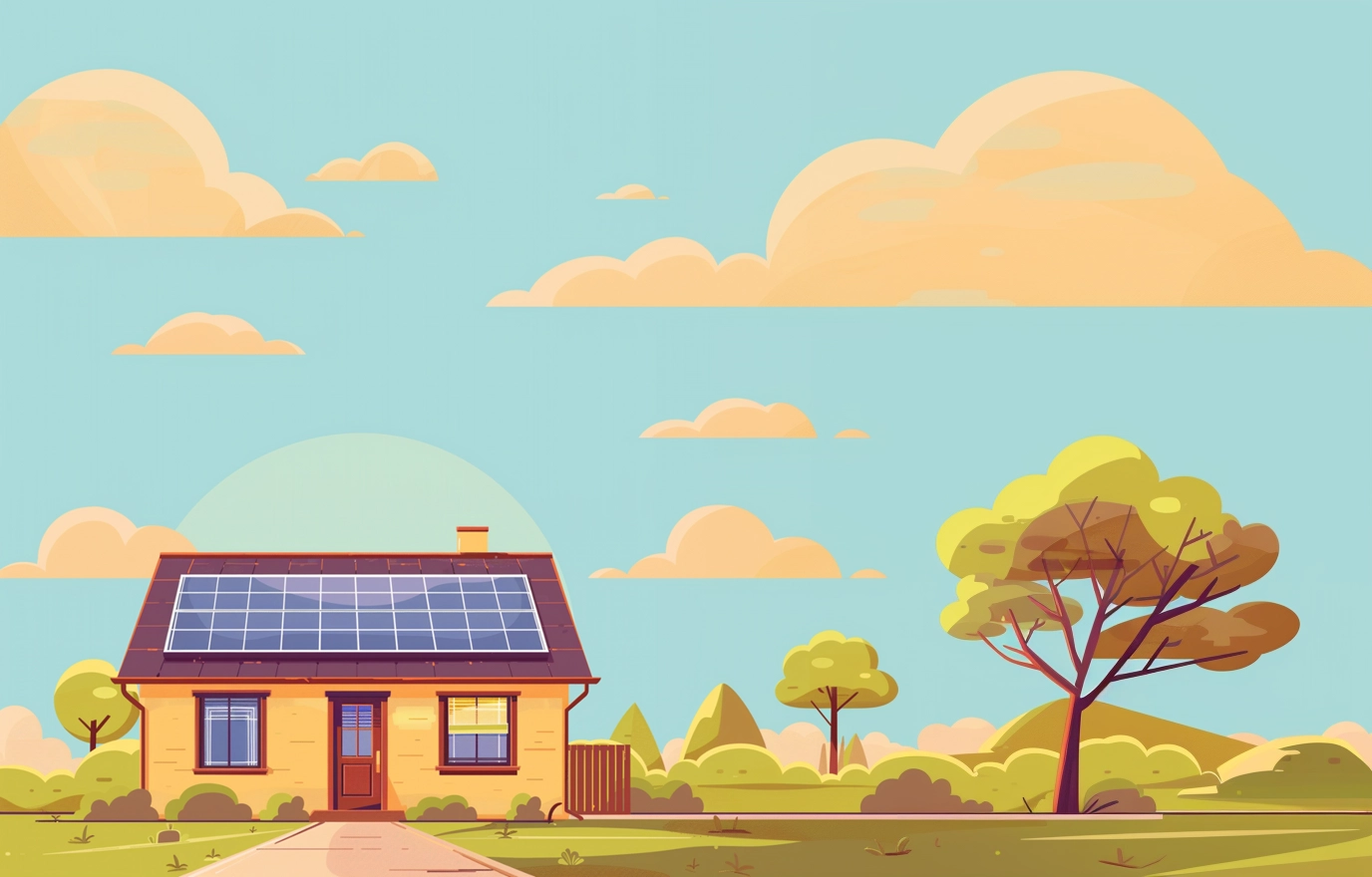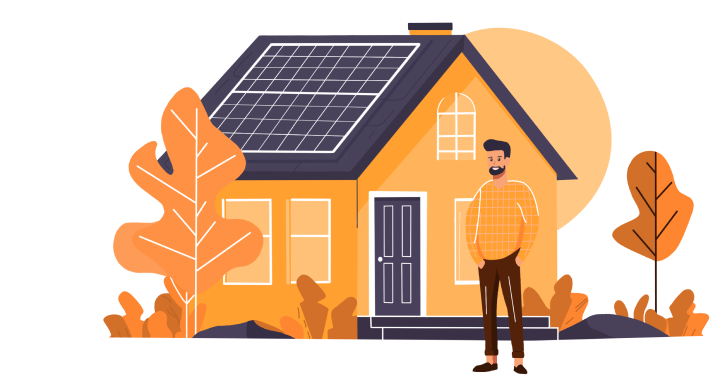Solar panels installers are the key to unlocking your home's energy potential. As the demand for sustainable energy solutions grows, choosing the right company becomes even more important. At Solar Energy Host, we make this choice easy by connecting you with top-tier installers in your area.
Whether you're curious about the cost or the installation process, our platform provides all the answers. Check out our step-by-step guide for a smooth and cost-effective transition to solar power.
Step #1: Assess installer compatibility
Begin your solar installation journey by thoroughly evaluating how solar solutions can meet your specific energy needs and fit within your residential environment. Start by computing your average energy consumption, which you can do by reviewing your utility bills. This will give you an idea of how many solar panels you might need to meet your electricity requirements.
Next, consider the size and layout of your property. Not all homes are equally suited for solar panel installation—factors such as the direction your roof faces, the amount of sunlight it receives throughout the day, and any potential shading from trees or nearby buildings can affect the efficiency of a solar power system.
Assessing these aspects will help you understand how well affordable solar panels can integrate into your lifestyle and meet your expectations, ensuring that your decision to install a solar panel is both beneficial and worth it.
Step 2: Evaluate Installation Costs
Begin the financial assessment of your potential solar panel companies by examining the detailed cost breakdowns provided by Solar Energy Host. These breakdowns include several essential components that can affect the overall price your solar panels installers will give you:
- Hardware costs: This covers all the physical components of the solar system, including panels, mounting equipment and inverters. Prices can vary based on the quality and efficiency of the materials used.
- Labor: Installation labor costs depend on the complexity of your system and the expertise required. It's important to consider the workmanship warranty that accompanies your solar panels installers service.
- Permits: The cost of permits is often overlooked but is crucial for legal compliance in solar installations. This varies widely, depending on local regulations and the scale of the project.
- Grid connection fees: If you're connecting your system to the public grid, there may be fees associated with this process, which can also include the cost of any necessary meter upgrades.
Each of these categories contributes to the total installation cost and should be carefully reviewed to ensure that you're receiving competitive and fair pricing. Leveraging solar panel financing options and the solar panels tax credit can make the installation more accessible and cost-effective.
Solar Energy Host facilitates this process by providing transparent cost comparisons across various solar panel services, helping you make an informed decision that aligns with your budget and solar energy goals.
Step #3: Select an installer
Choose a suitable installer from a list of residential solar installers recommended by Solar Energy Host. Our platform ensures that our solar panels installers are rigorously evaluated to meet stringent quality and professionalism standards.
Read through user reviews and feedback to assess the reliability and customer service of these certified solar installers, enhancing your confidence in selecting the right provider for your home. After selecting an installer, follow the instructions to begin your switch to solar—it's that easy.
Frequently Asked Questions (FAQ)
Can solar panels completely power my home?
Solar panels installation can potentially cover most of your home's energy needs, depending on factors like your energy use and the capacity of your solar system. Achieving complete independence from the power grid, however, may be challenging due to limitations such as available roof space, shading, and local weather conditions.
What happens during a solar panel installation?
The steps required to install solar power systems include the following:
- Evaluation: Your installer checks your property to make sure it's suitable for solar panels.
- Permits: For most locations, you'll need licenses like a building permit and electrical permit.
- Installation: Installing the panels typically takes a few days, depending on the size and complexity of the system.
- Meter Upgrade: Your solar panels installers might upgrade your electricity meter to a new system, so you can track the output.
- Interconnection: The system is connected to the grid and tested to ensure proper operation.
It is important to note that the installation process for solar panels may vary depending on both your chosen solar panels installers and the size of your solar installation system.
Do I need a battery for my solar panel system?
Adding a battery is optional but comes with benefits like backup power during outages, independence from the grid and potential savings on electricity costs by utilizing stored energy when rates are higher. Batteries do increase the upfront cost, so it's wise to discuss with your solar panels installers whether a battery meets your specific energy and financial needs.
Maximize the savings, minimize electricity bills
At Solar Energy Host, we simplify your transition to solar energy, providing straightforward and secure solutions. By entering basic information, you can connect with top local solar installation companies and receive competitive quotes. Our platform ensures you can install solar power effortlessly, with a free cost estimate to see potential savings.
Start saving with us at Solar Energy Host today as we guide you towards a sustainable future, one solar panel at a time.



















